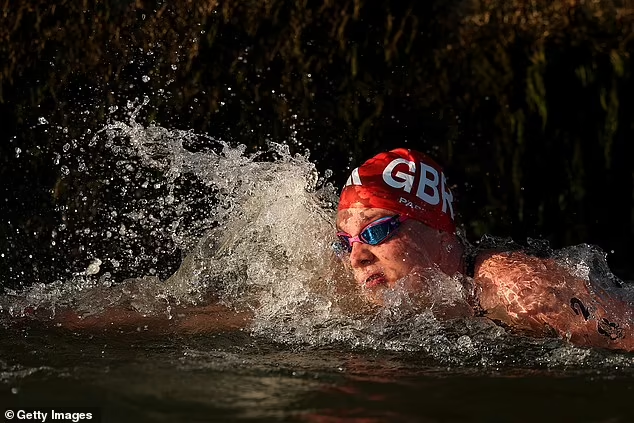
Britain’s open-water swimmers are calling on the UK government to address its own water pollution issues, inspired by France’s significant efforts to clean up the River Seine.
This comes after their recent experience racing in the Seine during the Paris 2024 Olympic Games.
French authorities invested £1.2 billion in a comprehensive clean-up of the Seine, a river that had been off-limits to swimmers for over a century due to severe pollution. The substantial financial commitment was aimed at restoring water quality to a level that would allow for competitive swimming events. The results of this initiative were evident during the Olympics, where all scheduled events in the Seine, including three triathlons and two 10k open-water races, proceeded as planned, despite initial concerns.
Last week, the men’s triathlon event faced a delay due to temporary water quality issues, but the successful completion of the remaining events highlights the success of the clean-up efforts. Hector Pardoe and Toby Robinson, two prominent British swimmers, have used this opportunity to advocate for similar measures in the UK. Pardoe, who earned a world bronze medal and finished sixth in the Seine races, praised the French authorities for their achievement. He emphasized that the clean-up could become a defining legacy of the Paris 2024 Games, demonstrating that significant investments can restore even heavily polluted waterways to a state suitable for high-level competitions.
The call for action in the UK comes amid ongoing controversies surrounding water quality back home. Liberal Democrat environment spokesperson Tim Farron has condemned the current state of the UK’s waterways, particularly in light of frequent sewage dumping incidents, describing the situation as a “national disgrace.” The urgency for the UK government to follow France’s example has been underscored by these concerns, as well as by the positive outcomes witnessed in Paris.
By advocating for cleaner waterways, Britain’s open-water swimmers hope to inspire a similar commitment to environmental stewardship in their own country. They argue that improving water quality would not only benefit competitive sports but also enhance public health and environmental sustainability. The success of the Seine clean-up serves as a powerful model for how dedicated efforts and substantial investment can yield significant improvements in water quality, setting a precedent that the UK could follow.







